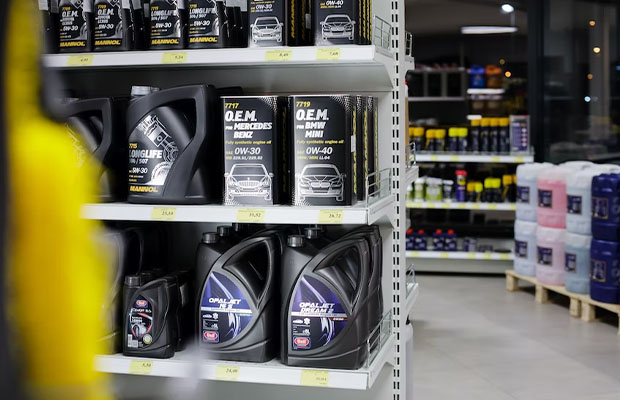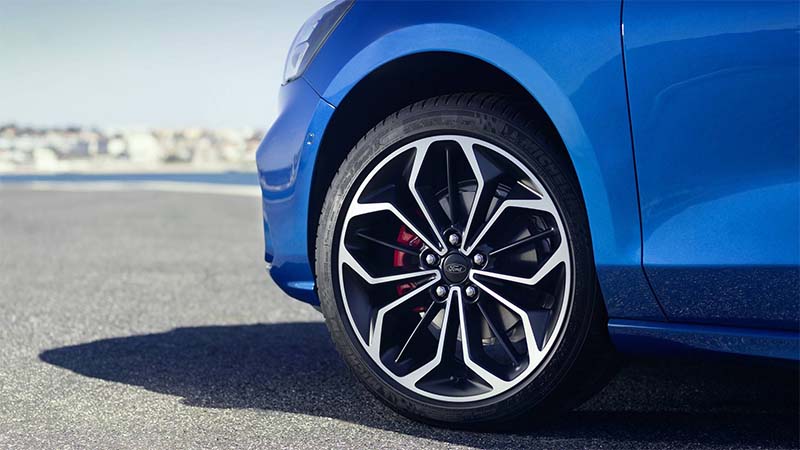For your car to keep running at peak performance, your engine needs the correct oil, but how much oil does my car need? The engine in your car will determine that, I suppose. Most engines require five to six quarts of fuel. Fortunately, it doesn’t have to be difficult to give your car the right amount of oil; we are here to assist.
Your engine’s performance and overall health can be impacted by the amount of oil it receives.
We’ll show you how to calculate how much oil your car will need.
Why is Oil Important?
Let’s first examine the precise reasons why oil is crucial for your car. There are numerous moving parts in car engines, and those parts can generate heat and friction. Simply by absorbing heat and lubricating the engine, oil keeps a car’s engine from overheating and enables it to function properly.
Therefore, oil requires upkeep. You won’t install it in your car just once and forget about it for the duration of its life. To keep it running smoothly, your car needs routine maintenance, and oil is no exception.
Oil loses the thickness that initially helped to make it so effective as it starts to degrade over time. This indicates that it is unable to carry out its duties as effectively as it did before being added to the vehicle. For this reason, it’s a great idea to make it a habit to check the amount of oil in your car. In the end, this can only be avoided by changing the car’s oil at the proper intervals. By doing this, you can make sure the oil is pure, effective, and doing a great job. In addition, the kind of oil your car uses can affect how often the oil needs to be changed.
How Much Oil Does My Car Need?
In addition to lubricating your engine’s components, which prevents them from causing one another harm, oil also keeps your engine cool. Both of these areas could experience problems if your oil level is too low. Additionally, the top portions of your engine need to be lubricated and shielded from damage within seconds of your car starting.
However, if there is too much oil, it may foam and fail to properly lubricate the different engine components. This makes it essential that you are aware of how many quarts of oil your car contains and how much you require for lubrication and cooling.
Typically, engines need five to eight quarts of oil. The amount of oil needed, though, may differ depending on the size of your engine. As an illustration, a 4-cylinder oil engine may need about five quarts of oil, whereas a 6-cylinder oil engine may need six quarts. Generally speaking, you’ll need less oil for your car the smaller the engine is.
Also Read: How Long Does a Car Inspection Take?
How to Identify How Much Oil Your Car Needs?
Here are a few ways to check to see how much oil your car needs.
Check the Owner’s Manual
The owner’s manual for your car is the first place you should look. The type of oil you require, the required viscosity or thickness, the frequency of replacement, and the required quantity are typically mentioned there. You can browse the manual library on your manufacturer’s website if you can’t find your owner’s manual there. To get it, you may occasionally need to register on the website or enter your vehicle’s VIN.
Check Product Manual
The product manual is the next item that you should examine. You can learn a lot from the product about which oil is best for your car. When it comes to grades, motor oil typically has two numbers. The thickness or viscosity at lower temperatures is indicated by the first number. Oil moves well in colder weather if the number is lower.
The second number indicates how well the oil performs at higher temperatures. Oils may thin out as the temperature rises. Finding oil that can still properly lubricate your engine in warm climates is therefore essential.
You can determine how much oil you need by knowing the grade of the oil and using that information in conjunction with the instructions in your owner’s manual, particularly in a particular climate.
What Type of Oil Should You Choose?
The viscosity level required for your engine will determine the type of oil you should choose, which can heavily depend on the climate (which affects the oil flow). Additional information on the viscosity type your engine requires can be found in your owner’s manual.

Additionally, you ought to consider the type of oil. You can typically choose from:
- Conventional – This is created from refined oil and has a slower flow, making it perfect for lubrication in older engines and cars in colder climates.
- Synthetic – This type of oil is manufactured and typically contains special additives to improve the oil’s flow and cleaning capabilities. For cars operating in environments with high temperatures and engine stress, synthetic oil is typically the best choice.
- High-mileage oil – High mileage oil is advised for vehicles with more than 75,000 miles because it can help break up sludge, slow oil loss, and increase oil efficiency.
Your driving habits will also play a role in deciding which type of oil you use, along with the climate, engine type, and required viscosity. You might want to think about using synthetic oil if you frequently drive in stop-and-go traffic or use your car for work like towing.
What Happens If My Oil Level is Too High?
Also undesirable, the crankshaft and oil pump have a tendency to aerate and whip excessive motor oil into a froth. It essentially turns the entire engine’s moving parts into a single large oil pump, and the oil pump’s intake will also be picking up a lot of air in addition to the oil.
Remember that at highway speed, the crankshaft and other parts will be turning at about 20 times per second, causing a lot of agitation of the oil. Serious engine wear may result from frothy, bubbly motor oil’s inability to effectively lubricate cylinder walls and bearings.
If you’ve still got doubts about how much motor oil your engine needs, make sure that the oil level on the dipstick is between “add one qt” and “full,” and you should be fine!
What Happens If My Oil Level is Too Low?
Oil is used for a variety of things, so that’s bad. The majority of us are aware that it lubricates engine components. Oil is also lowering engine friction at the same time. It’s a lesser-known fact that oil contributes to engine cooling, which is one of its lesser-known uses. For each of these areas to operate at their best, the appropriate amount of oil must be present.
Most vehicles can run a quart low on oil for a short time with no serious ill effects, but remember that startup is the most critical time for any engine. The upper-end parts (cam, cam bearings, lifters, valves, and timing chain) must receive motor oil within the first few seconds of starting the engine. These vital components won’t receive enough oil quickly if the crankcase’s oil volume is too low.
Final Words on Car Oil
Depending on the size of the engine, your car will need different amounts of oil. Your car will use less oil than a car with a larger engine if it has a smaller engine.
Typically, engines need five to eight quarts of oil. But how much oil is needed can vary depending on the size of your engine.
For proper vehicle maintenance, it’s crucial to check that your car has the proper level of oil. The website of the car manufacturer is another resource you can use if you can’t find the answers you’re looking for there. Just make sure you check the right year of the car.
A mechanic at the shop can assist you in determining how much oil your vehicle needs, which is an additional choice.
Rda More: How Much Does It Cost To Wrap A Car?
FAQs
Is 1 Litre of Oil Enough for Car?
Make sure that you are using the correct oil for your car. To get an idea of how much oil you need; the gap between the marks on the dipstick usually represents around 1 litre of oil, so you know that if your oil mark was at the minimum, you need around a litre to top it up.
How Long Does 1l of Oil Last?
This can range from 1 liter per 1,500 km to 1 liter every 5,000 km. Modern engines can also consume an excessive amount of oil. As a preventative measure, it is advisable to check the oil.





